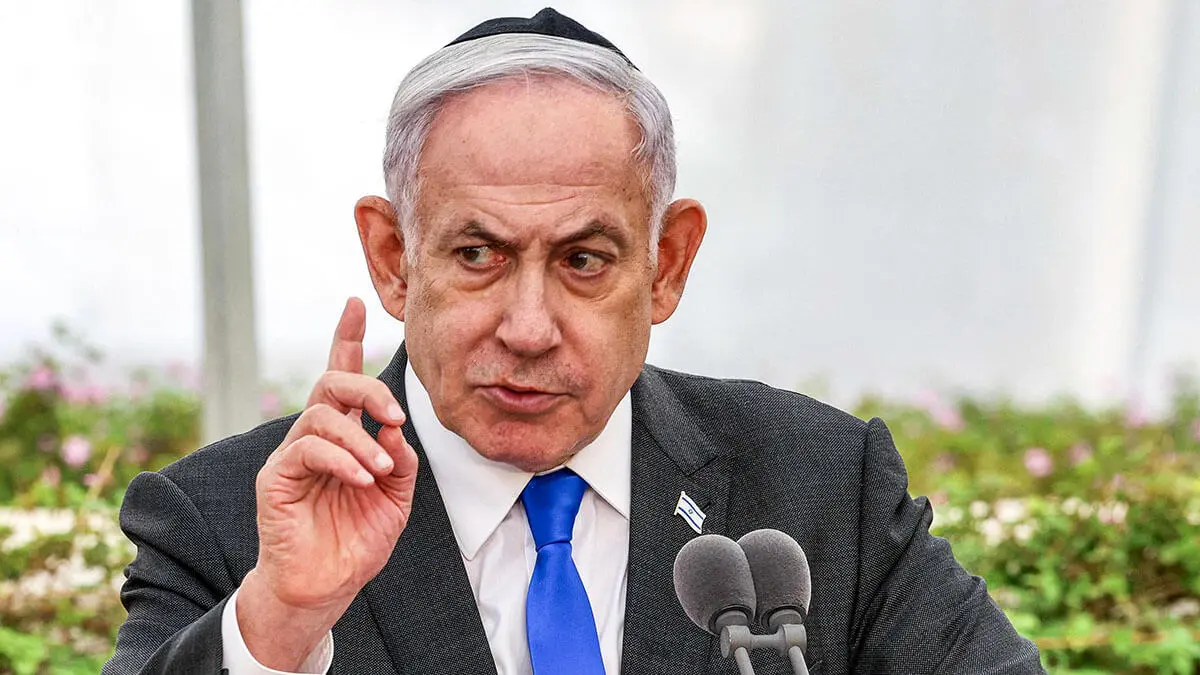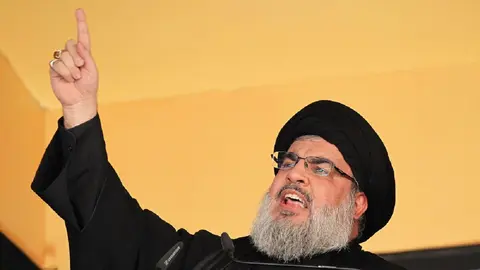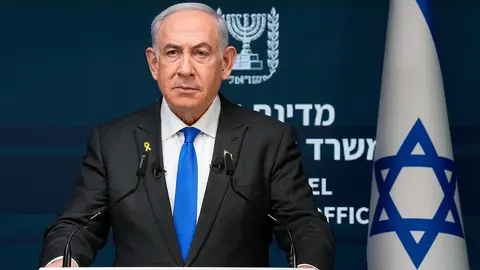Netanyahu's long arm

The elimination of the leader of Hezbollah (Party of God), the main target of the intense bombing raids on Beirut, has removed the main terrorist organisation, armed and controlled by Iran, from its position to harass Israel and serve as a buffer against a possible open war between Tehran and Jerusalem.
Sayyed Hassan Nasrallah had been Hezbollah's undisputed leader since 1992, having started his political career in the ranks of the Amal Movement in the 1980s. In addition to increasing Hizbollah's military capabilities, he managed to multiply its political influence in Lebanon far beyond its representativeness, effectively forming what has come to be called ‘a state within the [Lebanese] state’.
With its elimination, following the targeting of many of its leaders and guerrillas by sabotaging their pagers and walkie-talkies, Israel's head of government, Benjamin Netanyahu, has achieved several objectives.
It demonstrates, primarily to the Iranian regime and its proxies, that Netanyahu was not bluffing when he warned in his speech to the UN General Assembly that ‘there is no place in the Middle East that we cannot reach’, to which he added a direct warning to the Iranian ayatollahs, especially Supreme Leader Ali Khamenei: ‘Know that if you attack us, we will respond’, hinting that such a response would be brutal.
The intensified intelligence and bombing operations in Lebanon have come as the US and France have been plotting a 21-day truce, which only the most naïve thought Israel could accept.
Netanyahu clearly defined the goals he intended to achieve immediately after the Hamas terrorist attack on 7 October 2023: to destroy Hamas and Hezbollah, at least their ability to harm Israel. Of course, feelings and ideas of revenge will not be eradicated by a military victory, even a crushing one. Netanyahu and the Israelis know this too, but the shaping of minds takes a long time and is therefore left for after the possibility of ‘driving the Jews from the river to the sea’ has been eliminated.
Both Hamas and Hezbollah knew in advance that a challenge to Israel would provoke Israel's response, as it has. Their strategy was based on the conviction that the forcefulness of their retaliation would be such that the narrative would turn against them; international public opinion would forget the 7 October massacre, or at least mute it, and even trigger a regional war in which Arab countries would be put between a rock and a hard place in breaking off relations with Israel, or planning to have or intensify them.
Netanyahu, who when he returned to power had court cases pending against him for corruption, bribery, fraud, bribery and abuse of power, far from cowering, has accentuated his stature as a leader, as happens when a country is at war, especially when its very existence may be at stake. It has driven US President Joe Biden to despair. Not only has he been overwhelmed in his theoretical role as a powerful mediator and arbiter of the conflict, but he has had to reaffirm time and again his support for Israel, even in the event that it carries out war actions that could be brought before the International Criminal Court or the Hague Tribunal.
The new map that Netanyahu is shaping in the region is not exclusively attributable to his merits. Of course, Lebanon will no longer be the same. Indeed, as an independent country on whose territory people of all grades, status and religion could coexist and even live together, it has long ceased to exist. Israel is preparing its ground invasion, which in any case will not be to occupy it and stay, but certainly to establish a very wide security strip that will keep the temptation of Hezbollah or related or successor organisations to continue to make life impossible for those living immediately in Israel along the borderline for a few years to come.
As for Gaza, Netanyahu reaffirms that, the day after the war is over, he will not tolerate Hamas running the Strip. Nor will he want to reoccupy it, as those who accuse him of excessive expansionist zeal insist. If there is one thing that distinguishes Jewish analysts of all kinds, military, civilian or scientific, it is their finesse and their ability to avoid repeating bad experiences, so that in the case of Gaza they will not want to return to a territory they left of their own free will. The preponderance of Hamas in Gaza, completely ousting the Palestinian Authority itself, has served to show that, over the past two decades, Hamas has used the vast majority of the international funds it received to prepare a sophisticated terrorist infrastructure, now exposed by the Israeli invasion.
‘Israeli missiles fall by the thousands in southern Lebanon, and people die without knowing why’, said the distinguished Moroccan-born writer Tahar Ben Jelloun on Saturday. Indeed, dozens of buildings have collapsed in the Israeli bombardment. The undisputed excellence of Israeli intelligence favours the surgical nature of the bombings. But in war, there is inevitable damage, especially when many of the targets are hidden or concealed behind human shields.
The US presidential election on 5 November will in any case change the occupant of the White House. But, unless the new man makes such a radical shift that he stops supplying arms and support to Israel, it is metaphysically impossible that Netanyahu, strengthened as the country's leader, will give up on achieving his goals, and thus ensuring the country's security for a few more decades.



